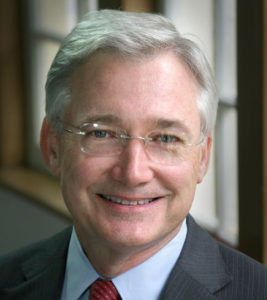In a widely circulating op-ed in the New York Times, Elizabeth Dias describes a speech then presidential candidate Donald Trump gave at a small evangelical college, Dordt University in Center City, Iowa. The most famous, or infamous, remark in his 67-minute speech was that he “could stand in the middle of Fifth Avenue and shoot somebody” and “wouldn’t lose any voters.”

Stephen Shoemaker
But what he also said that day has had lasting significance: “I will tell you,” he said, “Christianity is under tremendous siege, whether we want to talk about it or we don’t want to talk about it.” He said Christians make up the overwhelming majority of the country, “and yet we don’t exert the power that we should have.” Then raising his finger, he said that if he were elected, “Christianity will have power.”
Is this a major reason 81% of evangelicals voted for him in 2016 and still support him? That he could save them from attack? Over and over they have been told that Christianity is under attack, especially their kind of Christianity.
To be sure, the demographic shift could be alarming, with the percentage of white Christians growing smaller in proportion to the total population. But what we are witnessing is the delusion of persecution which evangelical leaders have been encouraging in them. And this in a day when evangelicals enjoy a cultural and political prominence that I’ve not seen in my lifetime.
They are taught that criticism and ridicule (of which there is too much) is the same as persecution — which desecrates the memory of the true Christian martyrs through the centuries. The “War on Christmas” is not the same as early Christians thrown to the lions or Anabaptists burned at the stake for defying the spiritually oppressive union of church and state. In response to the feelings of being persecuted, what we are seeing in America today is a campaign of Christian supremacy.
“In response to the feelings of being persecuted, what we are seeing in America today is a campaign of Christian supremacy.”
To be sure, our nation is becoming more secular and less traditionally religious. But we must not make secularization the great enemy and Christian rule the solution.
Rabbi Abraham Heschel said years ago: “It is customary to blame secular science and anti-religious philosophy for the eclipse of religion in modern society. It would be more honest to blame religion for its own defeats. Religion declined not because it was refuted but because it became irrelevant, dull, oppressive, insipid.”
Might we turn our attention as Christians today to how to make our faith more beautiful and just and compassionate, more relevant to the real needs of the people around our doorsteps?
Instead, fed the message that they are under siege and undergoing persecution, many Christians today have turned to the way of political power, choosing to rule rather than to serve. It has been a major temptation of the church since the days of Constantine. It was the crown Jesus refused in the wilderness. There are too many Christians eager to take it up.
Stephen Shoemaker is pastor of Grace Baptist Church in Statesville, N.C. He served previously as pastor of Myers Park Baptist in Charlotte, N.C.; Broadway Baptist in Fort Worth, Texas, and Crescent Hill Baptist in Louisville, Ky.


